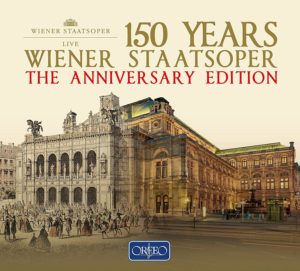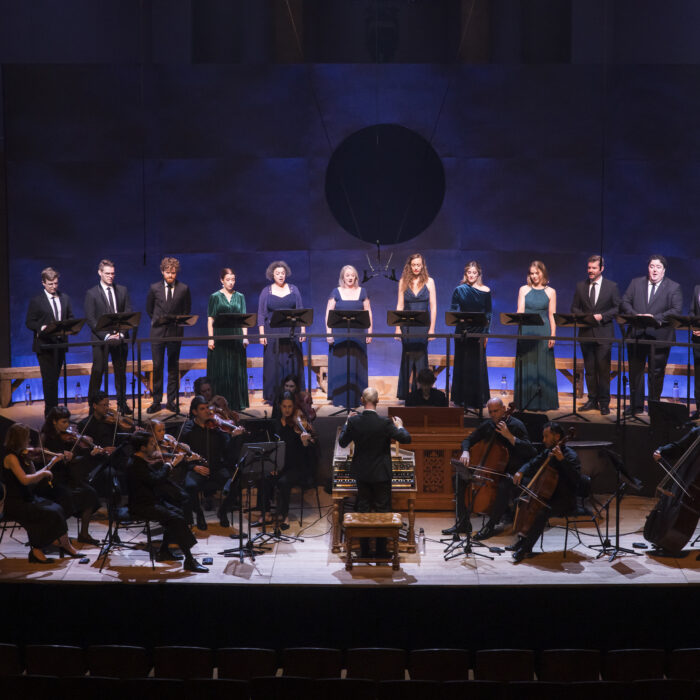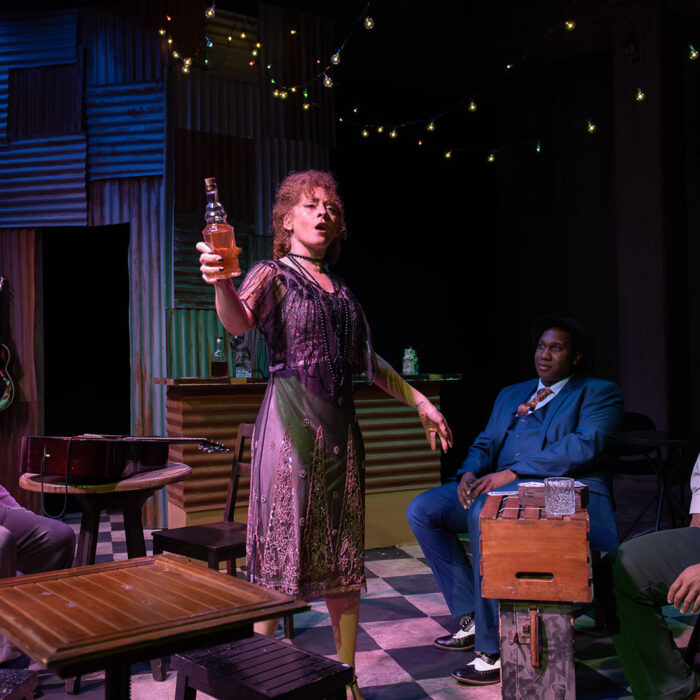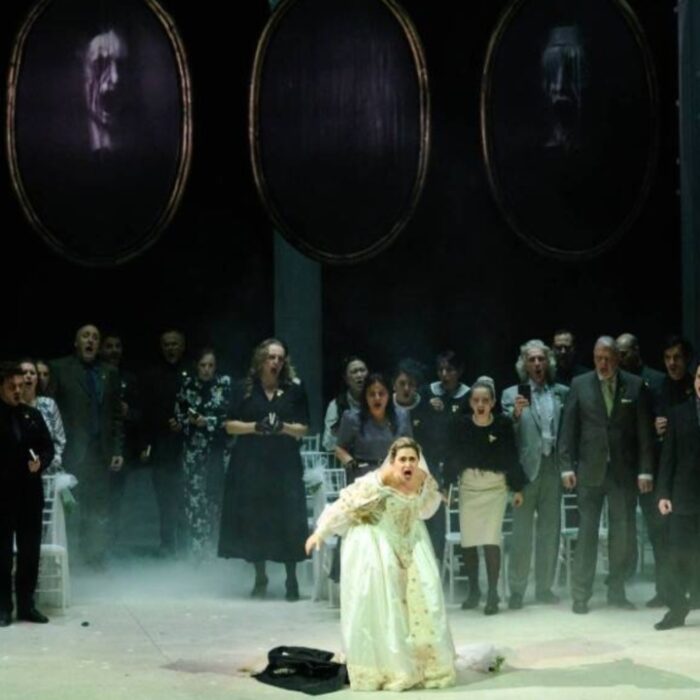
CD Review: 150 Years Wiener Staatsoper The Anniversary Edition
A Fantastic Set That Honors Major Artists, Including Dmitri Hvorostovsky & Johan Botha
By Francisco SalazarOver the summer, the Wiener Staatsoper celebrated its 150th anniversary.
The company presented an all-star gala which was showcased throughout the theater and also released two special edition collections. One was a DVD set of previously released content and the other was a CD set with mostly world premiere recordings.
The CD set of nine operas and a compilation album is a nicely packaged release by Orfeo that gives audiences a historical document of some of the greatest artists to grace the famed theater.
For the purposes of this review, we will not go through each of the nine operas or the highlights CDs as it would probably need at least three reviews to truly give each performance the time it needs. However, we will take a broader approach the puts a spotlight on the overall set.
The Cons
Before we get to the highlights of this set, it is essential to address issues with the set. The first comes from the highlights CD, which picks some of the most glorious duets and arias from the repertoire in order to include artists like Edita Gruiberova, Plácido Domingo, Luciano Pavarotti Mirella Freni, Cheryl Studer, and Franco Corelli, among others.
While the performances are incredible throughout the CD, it is bothersome to hear that some of the pieces end with an awkward fade especially when they connect with other musical parts of the opera. That is most evident with the selections from “La Traviata,” “Simon Boccanegra” and “Lohengrin.” It creates an awkward listening experience, particularly because it does not give room for the listener to breath before going into the next selection; this kind of breathing room is particularly crucial for any set that features such a wide range of composers such as Mozart, Strauss, Verdi, and Puccini. Even going from ‘Simon Boccanegra” to “La Traviata’ comes off as jarring due to the transitions between these two different works.
The other big issue is the unevenness of the selections. Yes, Mozart, Verdi, Wagner, Tchaikovsky, Beethoven, Rossini, Berg, and R. Strauss are represented but one wonders why a Puccini wasn’t included, given his prominence in the operatic repertoire.
Then there are the time periods of the performances for the individual operas themselves. Out of the nine operas, four come after 2010 and two come from the 1960s. The 90s and early 2000s aren’t represented and it could have given the set greater fluidity as regards artists and even technological advancement.
The Highlights
It’s so great to see this set pays homage to the late baritone Dmitri Hvorostovsky not once but twice. The first recording features the great baritone in a “Eugene Onegin” recording from 2013. This of course was one of Hvorostovsky’s signature roles and in this recording, he sings with heartbreaking intensity. The recording also stars Anna Netrebko as Tatiana in what was her role debut. The final duet is by far the highlight of the exceptional recording as the two singers give it their all singing with passion and aching phrases. Netrebko’s voice sounds full and bright, while Hvorostovsky emphasizes the text wonderfully. The recording also marks the only full opera recording with both Netrebko and Hvorostovsky, who collaborated numerous times throughout the years.
The second recording featuring Hvorostovsky is “Un Ballo in Maschera.” From 2016, this performance showcases one of Hvorostovsky’s final operatic performances as he was singing with cancer at this moment. While the voice was clearly affected by the disease, the baritone sings with that glorious lyricism he was well-known for, particularly in his great aria “Eri Tu.” In this recording, he is joined by Piotr Beczala and Krassimira Stoyanova in two expert interpretations of this classic Verdi work. Jesus Lopez-Cobos conducts the performance which also shows the late leader’s ease with Verdi’s style.
The set also pays homage to the late Johna Botha, who was a house favorite and one of the finest voices of his generation. A performance of “Ariadne auf Naxos” is featured in the set with Botha’s lush sound alongside Solie Isokowski; together, their voices float beautifully through R. Strauss’ sweeping lines, particularly in the final scene. Sophie Koch also gives a mesmerizing account as the composer in one of her signature roles. The company also released a DVD version for those interested in watching instead of hearing the performance.
In the 2013 recording of Wagner’s “Tristan und Isolde,” Nina Stemme is the undeniable highlight. She sings Wagner’s music with command of the text and provides different colors that showcase the maturity of her interpretation. For those that have heard her previous studio and DVD recordings, this performance has a raw quality that gives it excitement. Peter Seiffert is a good support for Stemme in their Act two duet but falls a little short in the Act three monologue where he sounds dry and a bit wobbly. Stephen Milling pours out all the emotional core of King Marke in his Act two monologue, while Janina Baechle sings with pure lyricism as Brangane.
Of the older recordings “Il Viaggio a Reims” is a treat with Claudio Abbado leading an energetic performance that features vocal fireworks, glittering music and nuance from each of its soloists. Montserrat Caballé is splendid in the recording as she dispatches coloratura lines; while her voice in this recording was already in decline, you can hear the enjoyment and sheer expressivity she gives to each phrase. Ruggero Raimondi, Ferruccio Furlanetto, Carlo Chausson, Enzo Dara, Cecilia Gasdia, Lucia Valentini-Terrani, Frank Lopardo, and Chris Merritt also make up this extraordinary lineup singing with bravura.
As noted the set also includes previously released recordings of “Wozzeck” with Walter Berry, “Fidelio” with Jon Vickers, Christa Ludwig, and Herbert Karajan, “Le Nozze di Figaro” with Jose Van Dam, Ileana Cortrubas, Frederica Von Stade, and Anna Tomowa-Sintow, and a recording of “Elektra” with Birgit Nilsson, still in her prime. These recordings are classics and showcase some of the best interpreters in their respective recordings.
All in all, this is a must-buy for lovers of operatic history and the Wiener Staatsoper. There is a lot to relish here.


